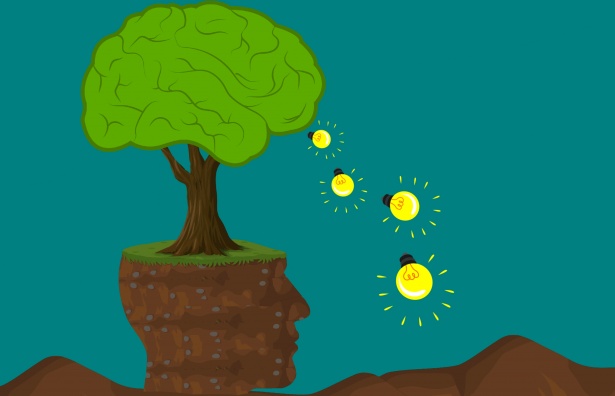 Dr Amy Fancourt head of Psychology at Queen Anne’s school and head of research at BrainCanDo, merges the world of research and teaching in an interesting example of how translation can work.
Dr Amy Fancourt head of Psychology at Queen Anne’s school and head of research at BrainCanDo, merges the world of research and teaching in an interesting example of how translation can work.
Could you tell us how research has influenced your teaching?
One of the areas of research that has had the greatest impact upon me as a teacher is the research around motivation and the impact of emotional contagion on learners motivations within the classroom. Queen Anne’s School are working with Prof. Kou Murayama and Prof. Patricia Riddell at Reading University on a long-term research project exploring the impact of emotional contagion on motivation and learning. Through this work I have considered my own behaviour and attitudes and the consequence this has on the emotional reaction of the students sitting in my classroom. If I expect my students to be motivated and engaged in the lesson then I have to communicate to them that what I have to teach them is something to be interested in! This has led me to really think about how I present myself and how I’m feeling when working with my students.
Another area of research that has had a great impact on my teaching is the work on memory and retrieval practice. For durable learning to happen it is vital to provide regular opportunities for students to retrieve the information that they have learned. Therefore, in my department we have adopted regular quizzing and consistent assessments to give students the opportunity to regularly retrieve the content we have covered during lessons.
What is the focus of your research?
BrainCanDo is working with university partners on three main research projects at the moment. The first of these is a longitudinal project with Professor Daniel Mullensiefen, Goldsmiths University, exploring the impact of extra-curricular activities on adolescent outcomes over time. The second project we are involved with is in collaboration with Professor Patricia Riddell and Professor Kou Murayama, University of Reading, exploring the role of social networks in emotional contagion. We are also working with Dr Fran Knight, Bristol University, exploring the impact of a later school start time on attention and impulse control in older adolescent girls.
What led you to this area of research?
Each of these projects came about because we had questions about various aspects of education. There has been a lot of discussion concerning the value and importance of co-curricular programs for pupil development and we wanted a way to systematically measure the impact of such pursuits on school children over time. Working with teachers, every teacher knows that motivating your pupils to want to learn is one of the biggest challenges and therefore we chose to work with motivation experts at Reading University to help us to understand what factors are most influential when it comes to pupil motivation. There is now a wealth of research to show that adolescent sleep cycles shift and there may be detrimental consequences on educational outcomes if this shift leads to a chronic state of sleep deprivation in our adolescent pupils. We opted to work with Dr Fran Knight to implement a later school start trial and measure the impact of this within the particular context of Queen Anne’s School.
Could you summarise your findings?
Each of these projects has yielded interesting and thought provoking findings so far and there is more data to be analysed. Our work with Goldsmiths has shown that active participation in music is related to changes in attitudes and mindset associated with conscientiousness and higher academic outcomes. The work with Reading University has demonstrated that there are clear social networks in operation in different year groups and they exert different influences on the attitudes and behaviours of those in the groups. What is perhaps the most interesting finding to emerge from this research so far is that those pupils who scored highly on measures of GRIT or resilience were those pupils who acted as the central hubs within the social networks. Further longitudinal analysis is needed to understand whether the similarities we see within networks is a product of homophily or contagion. Finally, our work with Dr Fran Knight demonstrated that after shifting the school start time for just one week pupils showed improved impulse inhibition which supports previous research showing the positive benefits of enabling older adolescents to have more sleep by shifting back the start of the school day.
How do you tell if something is working in the classroom?
My students are participative and asking good questions. If something is working and durable learning is happening then I would also expect this to be reflected in exam performance.
Which research-informed idea do you feel has had a big positive impact in your classroom
The research-informed idea that has had a big impact in my department has been retrieval practice. As a department we have integrated regular assessment and quizzing into our schemes of work and this has become central to our teaching. Anecdotally we have found that our students feel more confident with the material going into their examinations and are now using this technique much more in their own revision. We also actively encourage students to regularly recall the information they have learned on blank whiteboards during lessons and this too has become a standard revision practice for many of them now.
What do you think other teachers might find useful?
For teachers in the classroom there are some very direct applications that they might consider:
- Encourage pupils to participate in co-curricular pursuits wherever possible
- Be aware of the impact of emotional contagion in your classroom. This contagion can spread through pupils but also transfer from teacher to pupil: how you behave in front of your class matters. Understand the power of emotional contagion!
- Teenagers are not lazy but most of them are chronically sleep deprived. Teachers may need to think more creatively about how best to engage the learners in front of them in those early lessons in the day
How do you keep up-to-date with the latest education research?
I subscribe to updates from The Learning Scientists and the CTTL and they send around regular newsletters and articles that focus on one aspect of education research. I am also a member of the Chartered College of Teaching and so receive their quarterly ‘impact’ journal which is filled with digestible articles relating to the application of research in teaching and learning. As a school we are keen to remain research-informed and so I am also involved in learning study groups in the school and write my own summaries of educationally-relevant research to disseminate to other staff and pupils in the school. I also try to come along to the CEN seminars when my timetable allows
Do you have any suggestions of how communication and collaboration can be improved between teachers and education researchers?
It is important to create opportunities for teachers to meet with researchers and talk to them about their research and to allow teachers the time needed to really consider how this they could use this research to inform their own teaching practice. Creating space and opportunities for teachers to come together to share ideas and experiences of education research is also important.
Finally, if you could share one piece of advice about research-informed practice with other teachers and trainee teachers, what would it be?
Try it for yourself. Taking the time to read around research-informed practice is not wasted time as it has the potential to transform the way you teach and how your students learn.





